Bohemian Rhapsody: Pot Brownies, the AIDS Crisis and the Advent of Compassionate Care
Alia Volz’s family memoir Home Baked is a San Francisco treat.
-
CategoryArts + Culture, Cannabis, Farm + Table, Giving Back, Makers + Entrepreneurs, Time Capsule
-
Written byRich Thomas
-
Photos Courtesy ofMeridy Volz
There’s an unmistakable aroma produced by the cooking of chocolate and marijuana in the same pan. It’s not smoky and it’s not particularly sweet, but the unique amalgamation of scents instantly transports Alia Volz back into the kitchen of a drafty, 4,000-square-foot warehouse in San Francisco’s Mission District. It was in that building, built upon a rubble yard left over from the 1906 earthquake, that Volz’s mother baked her way into the annals of pot lore.
In the late ‘70s, Meridy Volz was producing upwards of 2,500 single-serving pieces of “Fantasy Fudge” each weekend, cooked up in a creaky, antique Wedgewood stove and distributed in hand drawn paper bags bearing the name Sticky Fingers Brownies. The details of the Volz’s wildly popular, highly illegal family enterprise are chronicled in Alia’s new book, Home Baked: My Mom, Marijuana, and the Stoning of San Francisco.
“I knew my family was unique. I knew we had a story that fascinated and shocked people,” says Volz, who was born just one year after Meridy officially began the business. “But the larger drama around it took time for me to uncover and really digest the material because really the story is about San Francisco more than it is about my family.”
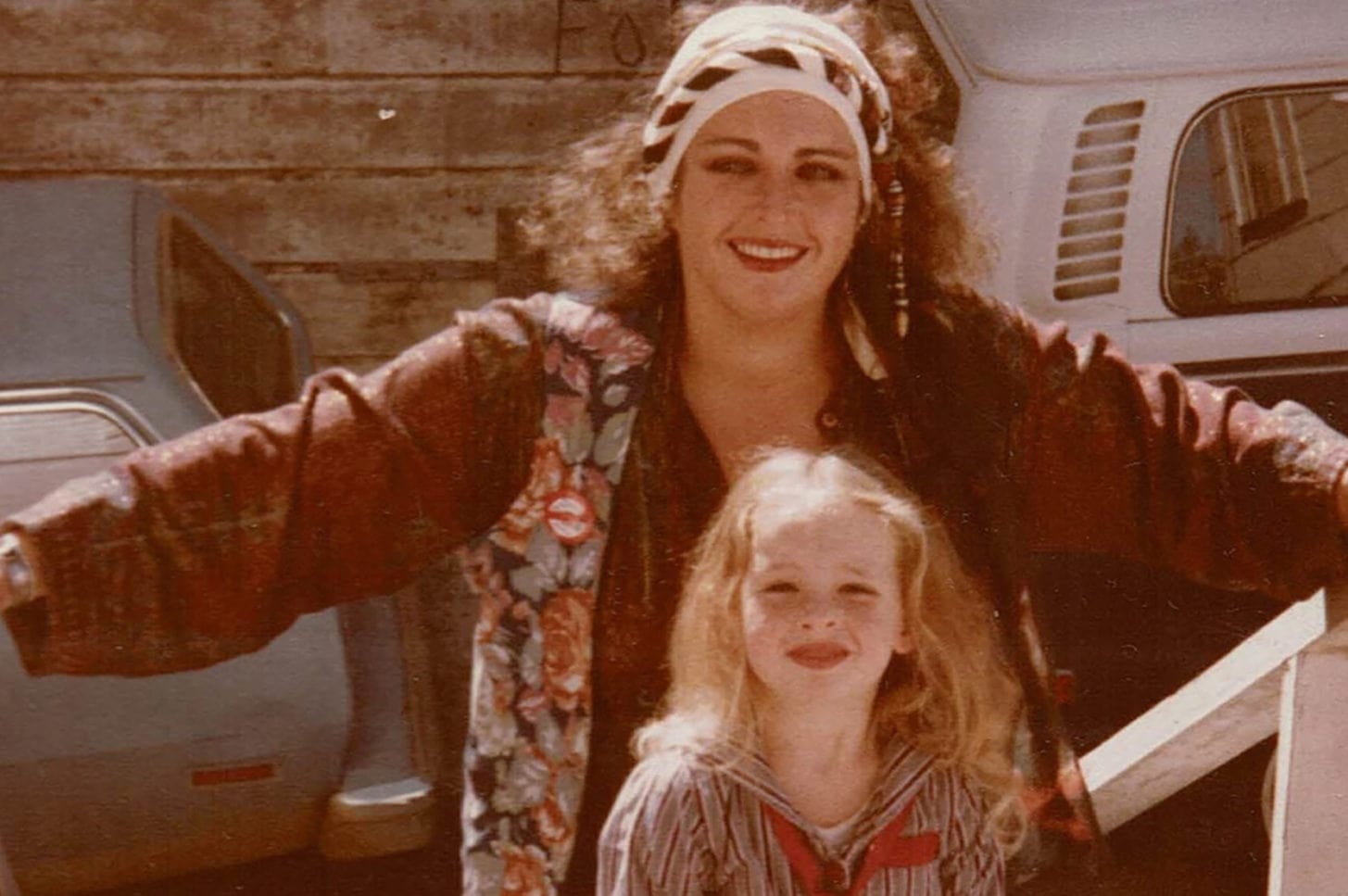
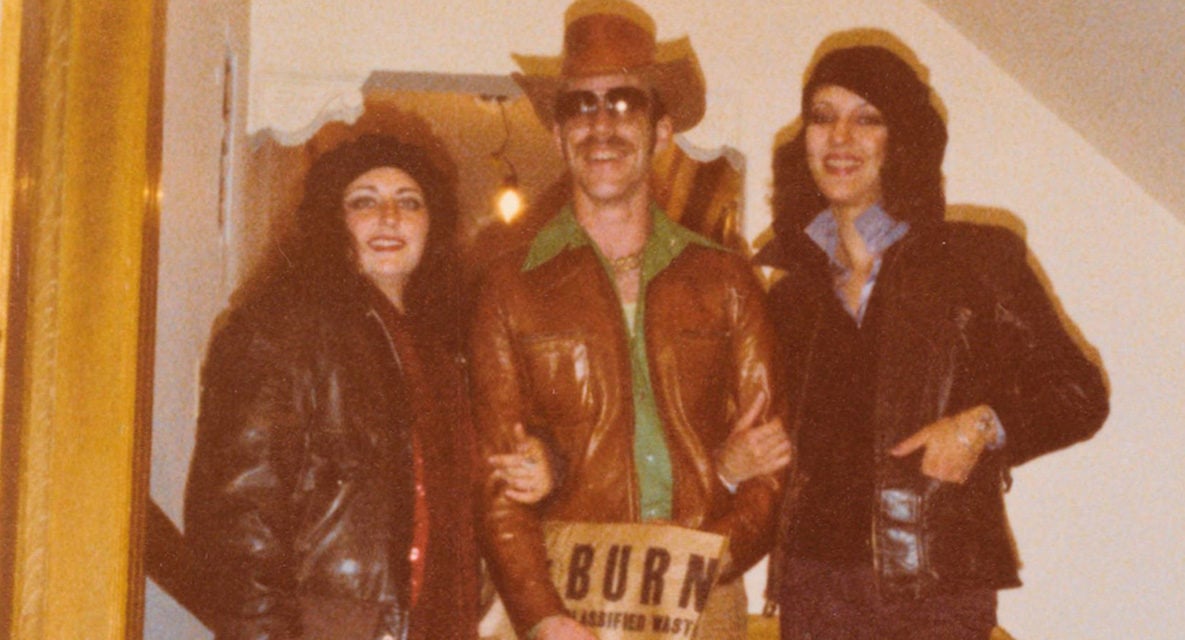
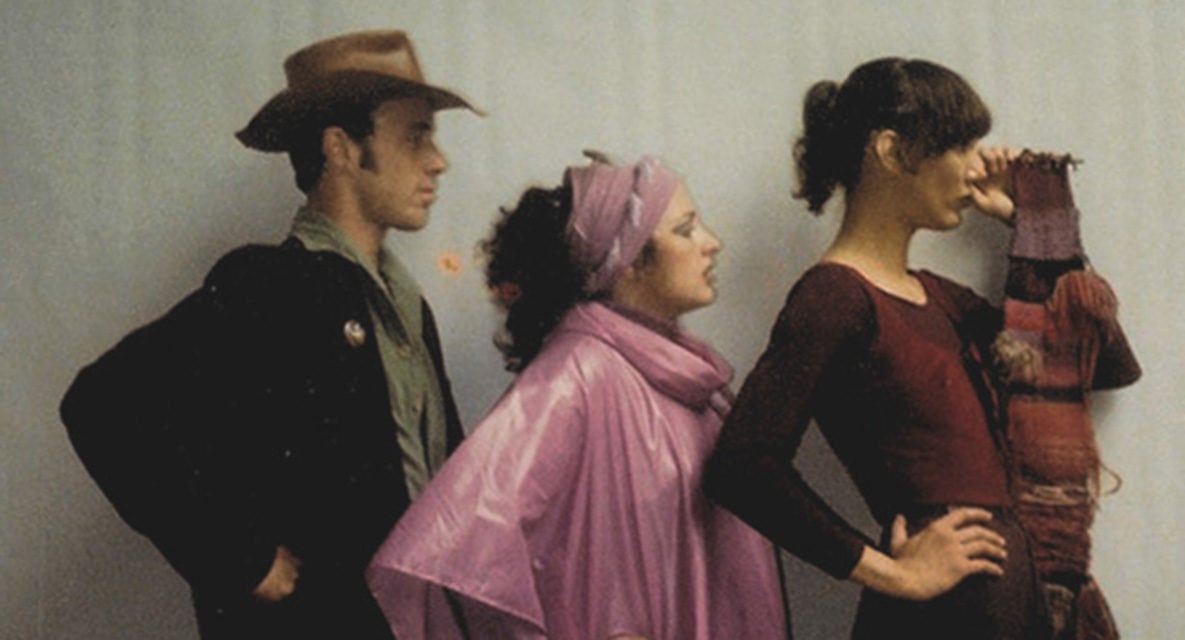
Sticky Fingers was established in 1976, 40 years before the passing of Prop 64 in California. The Adult Use of Marijuana Act paved the way for the legalization of recreational cannabis in the state, but you’ll need to go back to 1996 and Proposition 215, which permitted the use of medical cannabis, to get a closer look at the way the Sticky Fingers story intertwines with how acutely San Francisco was experiencing the AIDS epidemic.
Proposition 215 was authored, in part, by San Francisco marijuana activist Dennis Peron. His longtime partner, Jonathan West, who died of AIDS in 1990, used marijuana to treat his symptoms. By the time Prop 215 passed, nearly 400,000 Americans had died of HIV/AIDS. As a baby, Alia rode shotgun with brownie bags in her stroller as her mother made deliveries around the city. As she got older, memories began to form. The green clouds of dust billowing up as her father, Doug, ground up the sensimilla shake in a food processor while the Beatles, Stones and Earth, Wind & Fire played in the background. How her parents would throw coins and consult the I Ching before making any major decisions, which, given the felonious nature of their business, seems incredibly risky until you think about the fact that, in 22 years of selling pot brownies, they never got busted.
Then there were the clients—a motley group of blue-collar workers, musicians, thinkers and dreamers. Sylvester, known in San Francisco as the Queen of Disco, was a client and friend for 10 years until his death from AIDS-related complications. Volz remembers his lavish boudoir in the Castro; how he would lay out on his velvet couch with gold tassels, smoking reefer and looking like the caterpillar from Alice in Wonderland. She also remembers the tragedy, the pain, and the compassion that existed in a thriving, colorful community that was held in the death grips of a horrible, unforgiving disease.
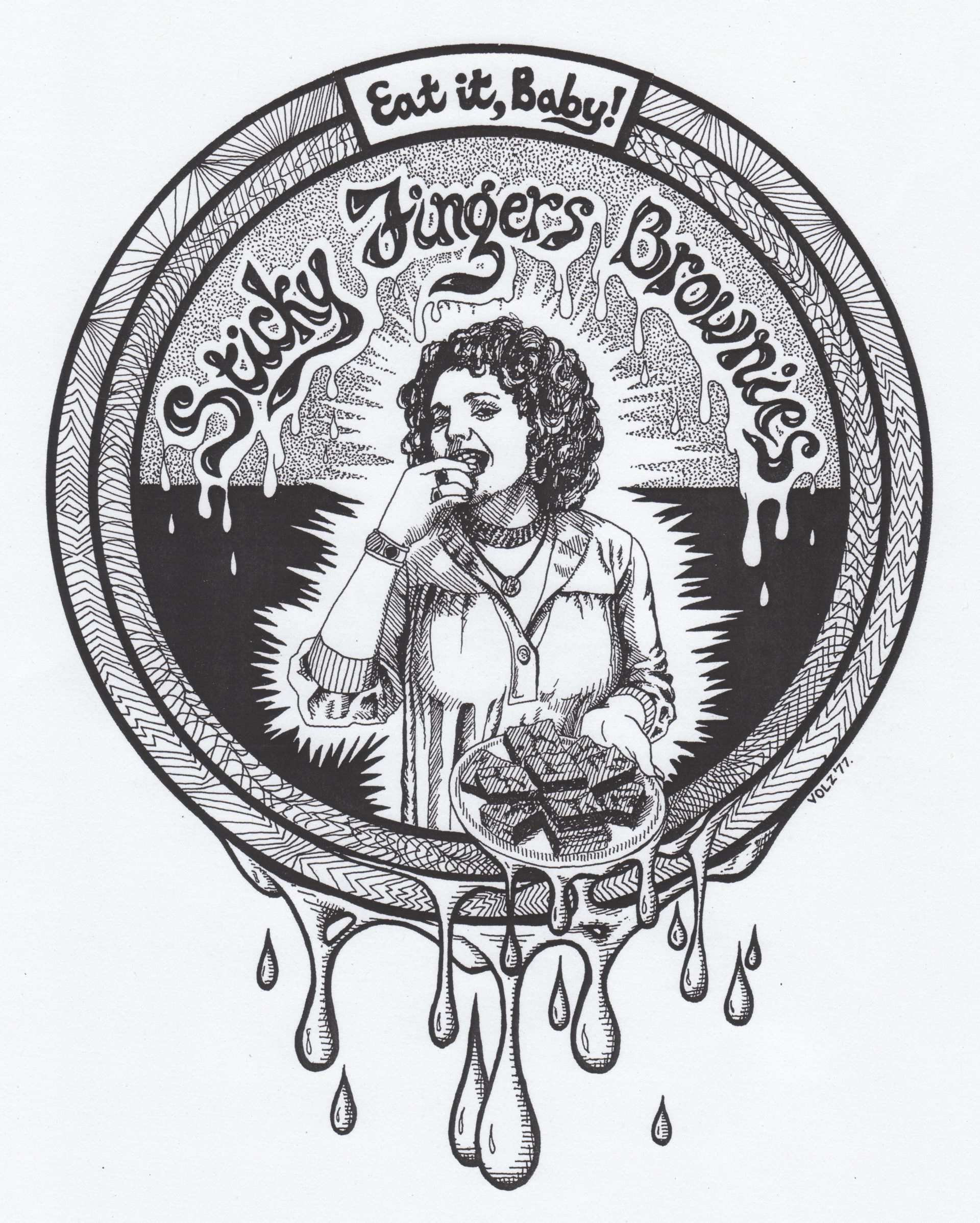
“There was a time in the mid ’80s where it seemed like everybody we knew was either dying, nursing someone who was dying, or in mourning,” she remembers. “These were by and large very young people in their 20s and 30s, and people that age don’t die easily. You could see that the pot brownies represented a little bit of relief to those who really needed it. At the same time, I’m getting messages from the D.A.R.E. program at school that was really demonizing everything associated with marijuana. I was too young to really understand the politics, but I knew that the messaging was conflicting. I just had this really visceral experience around compassionate use.”
There’s an undercurrent of magic and whimsy that runs throughout Home Baked, and why wouldn’t there be, given the rich tapestry of the ’70s and all the caricatures that floated through the streets of the Lower Haight and Fisherman’s Warf. But the book’s true potency lies within its historical significance, not just as prologue to today’s “Green Rush” and the proliferation of the American cannabis industry, but how it illuminates an oft forgotten era of California culture that, for many, is too painful to remember.
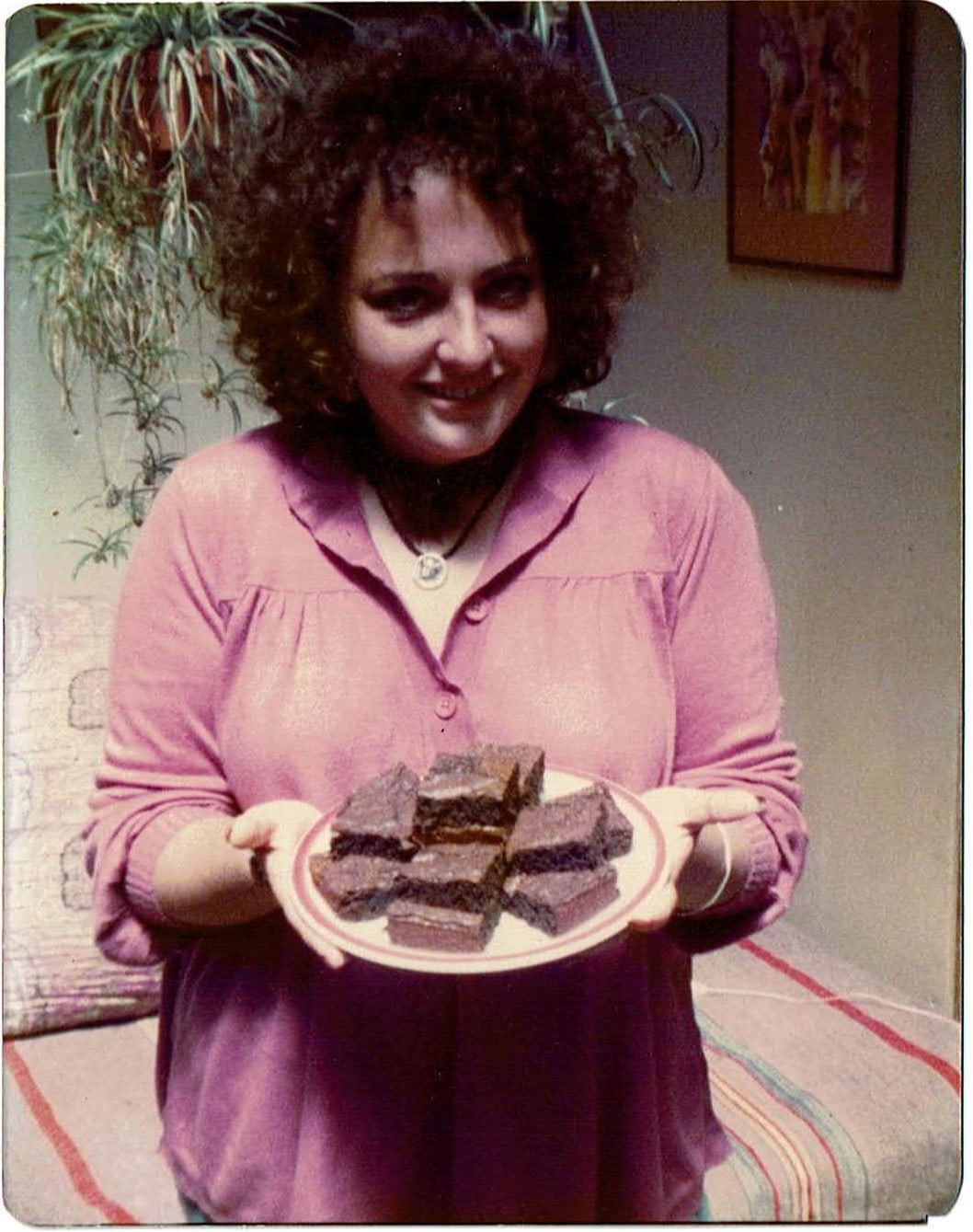
“In the period leading up to Pro 64 passing,” says Volz, “when it became clear that adult use was going to become legal in California, I was noticing that in the debates and conversations here was hardly any mention of the pivotal role that the AIDS crisis played in the medical marijuana movement and the progress that had been made toward legalization. So much of that emerged out of AIDS activism, and that part of the story was being erased.
“The AIDS crisis was being erased as it was happening. There was this cultural amnesia around it that felt like an additional indignity. I felt there was a debt of remembrance that needed to be paid. As soon as ACT UP stopped storming the FDA or dousing themselves in fake blood and sprawling out on the steps of City Hall—as soon as those protests abated—we started forgetting immediately.”
History shows that the fight for compassion and justice never really ends, it just changes shape. Protests give way to propositions, and propositions pave the way for growth. Home Baked is a memoir about a mother who went “from dealer to healer,” but it’s also a reminder that change comes in many forms—even if it’s a moist, cellophane-wrapped, 2-inch by 2-inch brownie.
Stoner Rockers Starcrawler Release Video for “No More Pennies”
Singer Arrow de Wilde delivers another body blow for one of LA’s most exciting bands.
California’s in the Driver’s Seat on Zero-Emission Vehicles
What other states could learn from the state’s aggressive electric agenda.
Get the Latest Stories






